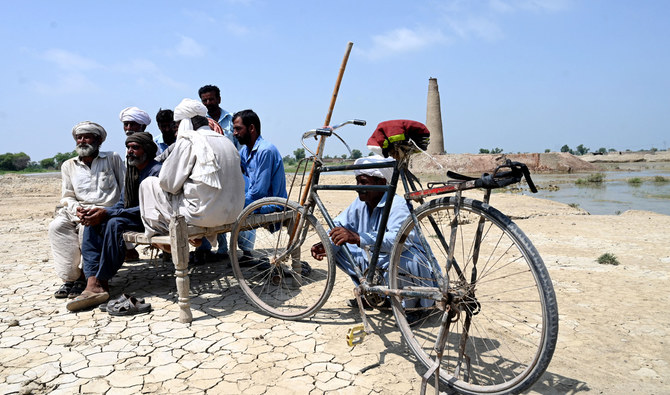RAJANPUR: The brick kilns that dominate the small village of Aqilpur in Pakistan’s Punjab province now lie abandoned, furnaces extinguished by weeks of torrential rain that have caused the worst floods in the country’s history.
Though the floods that engulfed Aqilpur and its surrounding fields have receded from the highs of a week ago, the kilns are still surrounded by water.
Most of those who lived on-site — part of the country’s millions-strong workforce known as “daily wagers” because of their piecemeal salaries — abandoned their homes for higher, dry ground.
“I come here daily on my bicycle and go from one kiln to another to look for work but find nothing,” said Muhammad Ayub, an itinerant laborer.
Now, a road that runs through the village has become a kind of town square for the kiln workers, who find themselves both homeless and out of work.
Ayub, 40, has a sick mother and an eight-year-old daughter to provide for.
When his home was destroyed in the torrential rains that preceded the flood, he sent them to a relative’s house close to the village.
But once the flood hit, his family was forced to take refuge at a makeshift campsite on higher ground outside the village.
More than 33 million people in Pakistan have been affected by the flooding, brought on by record monsoon rains that have swamped a third of the country, causing at least 1,300 deaths.
The floods have destroyed or badly damaged nearly two million homes or business premises, and for the rebuilding process to begin, kilns like those in Aqilpur will have to fire up again.
















